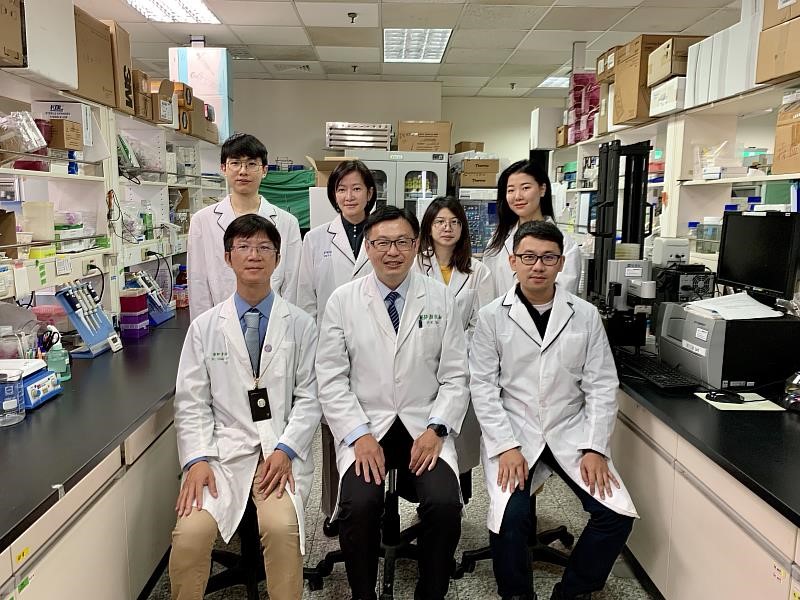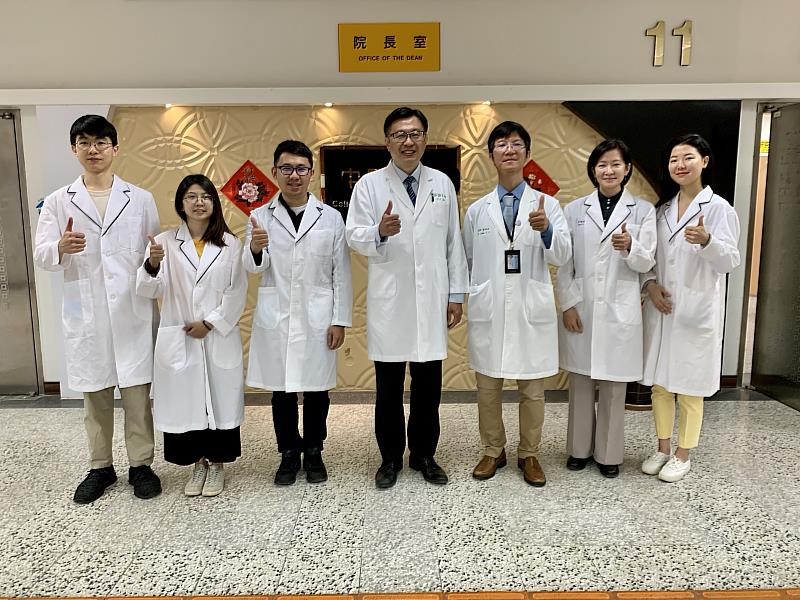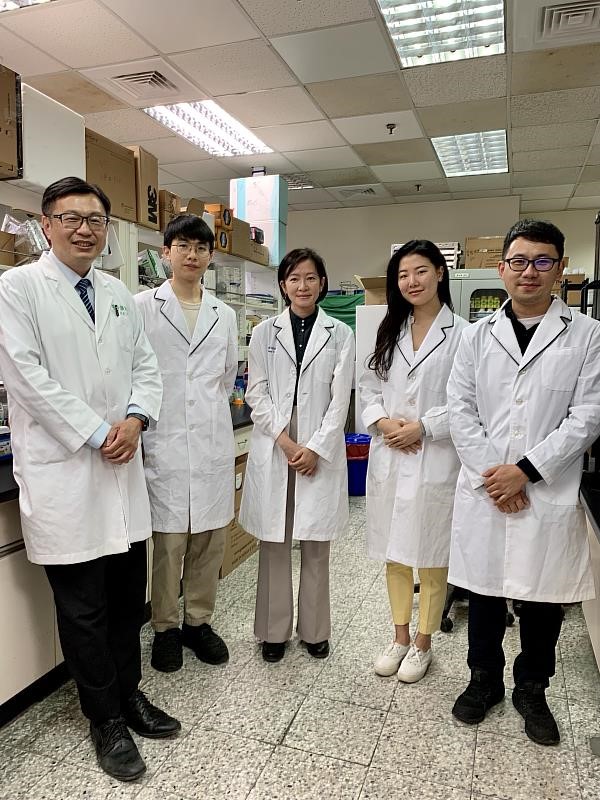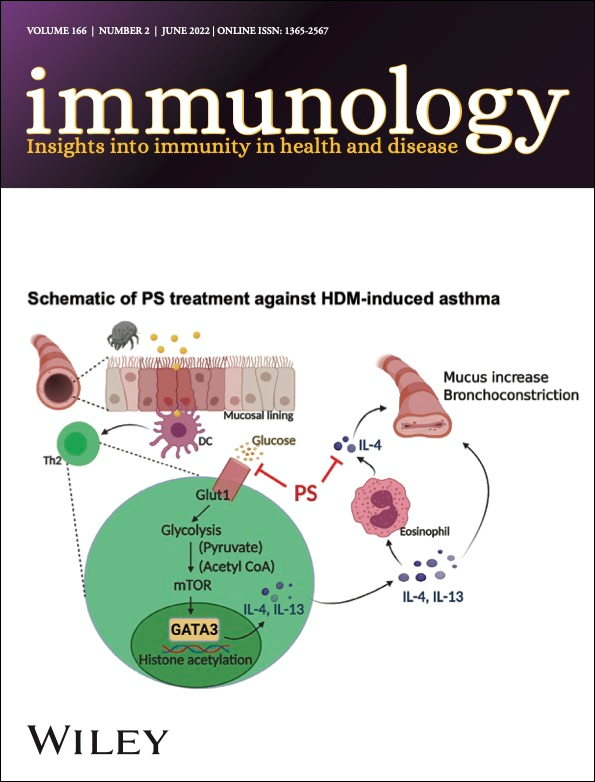“Reducing sugar intake could prevent and control asthma attacks”—China Medical University's research was selected as the “Featured Cover” of the international journal "Immunology"
Lowering sugar intake can help prevent and control asthma attacks. A research team from the Chinese Medicine Research Center of China Medical University (CMU) has newly discovered that pterostilbene, a component from Chinese herb Pterocarpus indicus Wild and the natural plant blueberry, preventively and therapeutically attenuates asthma attacks through an immune-metabolic mechanism. Pterostilbene can reduce the entry of glucose, inhibit the glycolysis metabolic pathway and histone acetylation of type 2 helper T cells as well as decrease the inflammatory cytokines and allergy-related immunoglobulin. This research was published in the internationally renowned scientific journal "Immunology" on May 19, and was selected as the “Featured Cover”.
This work was done by a basic and clinical team of Chinese and Western medicine cooperation led by Prof. Hung-Rong Yan, Dean of College of Chinese Medicine at CMU. The research team members include Dr. Chuan-Teng Liu, Assistant Prof. Ying-Chyi Song, Ms. Tsai-Chen Wu, Mr. Ko-Chieh Shiung, Ms. I-Hsuan Chen, Prof. Tung-Ti Chang, Dr. Shinn-Jye Liang and Prof. Hung-Rong Yen.
Following the finding that sugar is a risk factor for pancreatic damage, as revealed by Academician Chair Professor Wen-Hwa Lee and the research team at China Medical University, the Chinese medicine research team once again confirmed that lowering sugar intake could prevent and improve asthma, drawing attention to the importance of dietary intervention in maintaining health.
The Chinese Medicine Research Center led by Academician Chair Professor Lu-Hai Wang, Vice President of China Medical University, is the only Chinese medicine research center supported by the Ministry of Education in Taiwan. As a member of the research center, Dean Hung-Rong Yen said that the theory of traditional Chinese medicine believes that asthma is related to "phlegm-rheum (痰飲內伏)". The TCM classics "Lei Zheng Zhi Cai (類證治裁)" mentioned asthma related to sweets— "sugar asthma (糖哮)", and "Yi Zhi Xu Yu (醫旨緒餘)" also mentioned "sweet and thick diet…hamper the dynamics of lung qi(飲食厚味…肺氣為之不利)". Therefore, he often reminds patients not to eat too many sweets in the clinic.
Dean Hung-Rong Yen said that the team not only conducted experiments on immune cells and asthmatic animal models, but also cooperated with clinicians in the Department of Integration of Chinese-Western Medicine and Department of Pulmonary Medicine in China Medical University Hospital. Pterostilbene was found to significantly inhibit allergic responses in peripheral blood mononuclear cells of asthma patients. This study confirmed that traditional Chinese medicine and natural plant components can regulate sugar utilization by immune cells involved in allergies, change the immune metabolic pathway, modify epigenetic changes of allergy-related genes, and greatly prevent or improve asthma attacks, through a mechanism that is very different from the western medicine, steroids.
It is worth mentioning that Ko-Chieh Shiung and I-Hsuan Chen are two students from the University of Melbourne in Australia and the Brandeis University in the United States. During the COVID-19 pandemic, they took part in this project in the laboratory of China Medical University in Taiwan. When the pandemic toned down, they returned to Australia and the United States with much joy. Both of them said that their research and study experience in Taiwan allowed them to understand the research environment and capacity in Taiwan, especially research conducted by China Medical University, which combines perspectives from both traditional Chinese medicine and Western medicine. Their acquisition of knowledge on traditional Chinese medicine is particularly enlightening.

The research team led by Dean Hung-Rong Yen (in the laboratory).

Dean Hung-Rong Yen's research team shared the good news of the research results.

Dean Hung-Rong Yen and the research team including college students from Australia and the United State.

The featured cover of the international journal “Immunology”.

